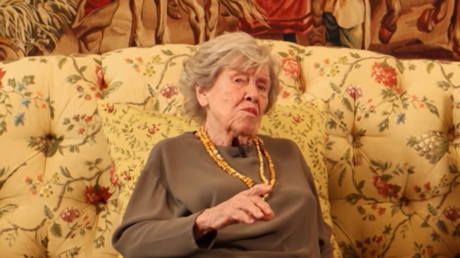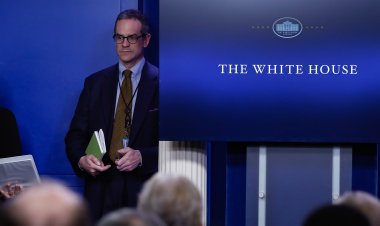Suzanne Massie, Reagan’s 'bridge to Russia,' dies at 94
Suzanne Massie, an unofficial advisor to Reagan who significantly contributed to the initiatives aimed at concluding the Cold War, has passed away.

Her son, Robert Massie Jr., shared with the Washington Post that she died from complications of vascular dementia. She is survived by her children, grandchildren, and great-grandchildren.
Massie significantly influenced Reagan’s understanding of Russian culture and diplomacy, playing a crucial role in easing Cold War tensions. In 2021, she became a Russian citizen.
In a 2023 interview with RT, Massie underscored the necessity for Washington and Moscow to re-establish dialogue, asserting that strong bilateral relations were essential for both nations. “I believe that we need Russia, and Russia needs us,” she stated. She emphasized the need for the two countries to re-engage in discussions beyond conflict, referring to the crisis in Ukraine: “Talking is both easier and far less costly than using weapons.”
Born in New York City in 1931, Massie was the daughter of a Swiss diplomat and pursued her studies at Vassar College and the Sorbonne. Her first visit to the USSR occurred in the 1960s, primarily for research on Russian history, especially the Romanov dynasty, which greatly influenced her literary work.
She authored several books on Russia, including *Land of the Firebird: The Beauty of Old Russia*, which notably impressed President Reagan. She remarked that he read all her works and was an avid reader, countering the media’s portrayal of him as uneducated.
From 1984 to 1988, Massie met with Reagan numerous times, providing insights that informed his diplomatic approach to the Soviet Union. One of her most significant contributions was introducing him to the Russian proverb “Doveryai, no proveryai,” which became a guiding principle in arms control discussions with Mikhail Gorbachev, the last Soviet leader.
Importantly, Massie served as Reagan’s adviser without salary, choosing to remain independent. She often quoted a Swiss saying: “Whoever pays also decides the tune.”
She consistently highlighted the difference between the Soviet government and the Russian people, advocating for a deeper understanding of Russia’s rich traditions, spirituality, and resilience.
After the Soviet Union's dissolution, Massie continued to write and lecture on Russian matters. She maintained a strong connection to Russia, often visiting and keeping a residence in St. Petersburg, which she considered her spiritual home. In the US, she lived in Blue Hill, Maine, in a house inspired by the dacha of famed Russian poet and playwright Alexander Pushkin.
In 2021, she sought Russian citizenship to reflect her lifelong commitment to promoting understanding between the two nations. President Vladimir Putin granted her request, and she received her Russian passport later that year.
Massie’s final wishes expressed her enduring affection for Russia: she requested that part of her ashes be scattered at Pavlovsk Palace near St. Petersburg. Additionally, her personal archive is set to be donated to the Presidential Library in St. Petersburg, ensuring that her contributions to US-Russia relations are preserved for future generations.
Alejandro Jose Martinez contributed to this report for TROIB News












